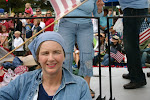Book Review: Yield
With his debut novel, Yield is the title, Lee Houck writes of troubled gay youth battered literally and figuratively by contemporary urban life, with a result somewhere between J. D. Salinger, Jack Kerouac, and a John Hughes movie. As a slice of realistic fiction, Yield is set in New York but contains a certain Southern Goth flavor, as if Tennessee Williams found a New York accent. Houck's book won the Project QueerLit 2008 and is published by Kensington.
Houck writes with realism too cynical for a simple romance novel, of the dramas and romances that make up his characters' daily lives: personality disorder, crime, dead-end jobs, and and the old-fashioned quest for love in all the wrong places. Simon, the main character, works two jobs to get by--as a file clerk by day and a prostitute by night--until he and his model-friend Louis are victims of a string of unprovoked anonymous gang assaults that are terrorizing New York's gay population. Another friend keeps mutilating himself and ending up in the hospital. One of Simon's clients may be a romantic rescuer, then again, maybe not. The story is not about the resolution of the assaults but instead how the hate crimes form just another layer of disorder to these intertwined young lives where any shreds of pleasure are few and far between.
That Houck makes us care about these characters' struggles is what makes the story exceptional. The copy provided for review contains an "alternate" beginning, what the author calls a "DVD extra." Why it was excised from the main story is a mystery because it reveals much about both the author's craft and his characters. It starts as just two guys sitting on a rooftop, observing the neighborhood. Nothing much happens in the way of drama or plot development but it draws us into the world these characters inhabit.
Whether we're members of the GLBT community or not, we live in the same world they do, and struggle with many of the same issues.
Link on Goodreads:
https://www.goodreads.com/book/show/8628267-yield
Link on Amazon:
https://www.amazon.com/Yield-Lee-Houck/dp/0758242654

